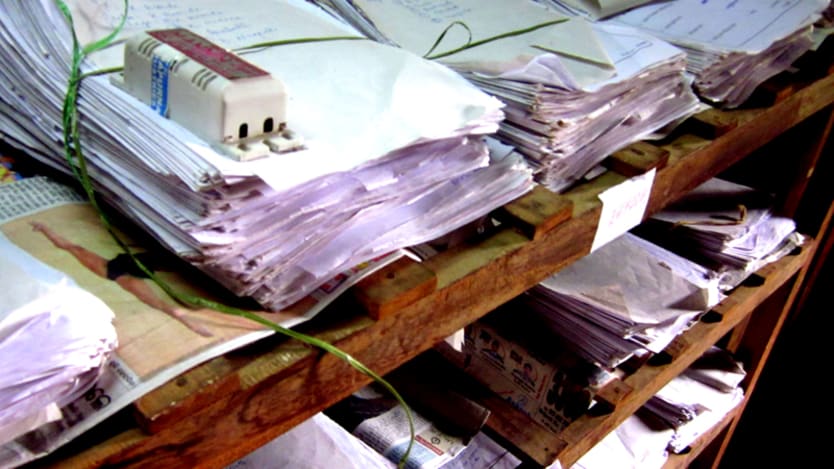
Recent experience across the developing world leaves no doubt that secure land rights for women is a fundamental requirement for ensuring that land management is sustainable and equitable. Plenty of evidence shows that, with secure rights, women are more likely to plant trees and take other actions that enhance ecosystems.
The growing consensus on women’s land rights will remain largely theoretical, however, until something is done about the many barriers that keep women from putting into practice the new rights they are supposed to obtain on paper. Powerful vested interests and layers of established gender norms complicate this task. But informed and organized people are powerful, too, and under the right conditions can succeed.
In the run-up to the 2015 United Nations Climate Change Conference in Paris, the constitution of the Consortium of International Agricultural Research Centers’ research program on water, land and ecosystems fostered a debate on this issue by posing one key question: What would it take to strengthen women’s land rights in practice?
The answers received from representatives of half a dozen organizations informed a high-level panel discussion titled “This land is our land: Gender perspectives on tenure and rights,” at the Global Landscapes Forum, held in parallel with COP21.
Expert opinions coalesced around three key points.
First, legal and policy changes are necessary first steps but are not sufficient by themselves to secure women’s property rights.
Such was the case in Ethiopia, for example, where the government put in place its progressive family law at the turn of this century, explained Agnes Quisumbing, a senior research fellow with the International Food Policy Research Institute. A few years later, the country “embarked on a community-based land registration program, which strengthened women’s rights to lands on the ground.” According to various studies, this had a positive impact on the adoption of sustainable land management practices.
In subsequent work, however, Quisumbing and other colleagues discovered “large gender gaps in land rights knowledge.” Women knew far less than men in their households about their rights with respect to land tenure and the transfer of land rights. The challenge, she said, is to enhance women’s knowledge of their rights through initiatives such as a community-based legal aid programs and mass media information campaigns.
Referring to Nepal’s experience with this issue, women and community rights advocate Bharati Pathak, stressed the importance of policies that reinforce community property rights over natural resources, but also of monitoring the implementation of these policies.
A second point that emerged from the debate centers on cultural diversity in gender relations and property rights. Approaches for strengthening women’s land rights must be tailored to local circumstances and not just replicated from one place to another.
In India, for example, past policies intended to increase women’s ownership of private property unwittingly deprived indigenous women of their rights to common land under customary communal tenure, according to development advocate Madhu Sarin. The more recent Forest Rights Act better recognizes the country’s cultural diversity, offering women equal rights to individual titles for occupied forestland, as well as community forests. Field studies show that, where women’s community forest rights are recognized, both men and women play an active role in protecting and regenerating forest resources.
Resource Equity’s Amanda Richardson outlined a systematic approach for determining how best to secure women’s property rights, taking into account the complexities of local cultural and legal contexts. “Most important,” she said, “is to listen to and learn from the women themselves.”
A third message from the experts is that, beyond being made more aware of their land rights, women must be invited to participate in collecting and analyzing data and information about their own experiences and needs. This provides them with a better basis for getting organized to act on new knowledge.
Using this approach in Kenya several years ago, Grassroots Organizations Operating Together in Sisterhood investigated with several ethnic groups the use of customary laws to perpetuate asset-stripping of widows and orphans. “Much current practice is inconsistent with historic precedents,” said GROOTS founder Esther Mwaura-Muiru. The group also exposed the practice of incorrectly designating public land as government land to disguise land grabbing.
Once women know the facts, Mwaura-Muiru explained, they can use legal and policy channels to hold spouses and rural households accountable. Armed with information about land grabbing, for example, women were able to rally their communities around an initiative to map and safeguard public land.
Citing a case from Togo, International Land Coalition’s Sabine Pallas explained the importance of partnerships for implementing progress laws and policies on equal land rights for women. By creating new knowledge and building capacity among rural communities, local organizations, and government officials, these alliances can go “beyond advocacy” to achieve practical change.
What would it take to strengthen women’s land rights? Have your say by leaving a comment below.
To read additional content on land and property rights, go to Focus On: Land Matters in partnership with Thomson Reuters.






